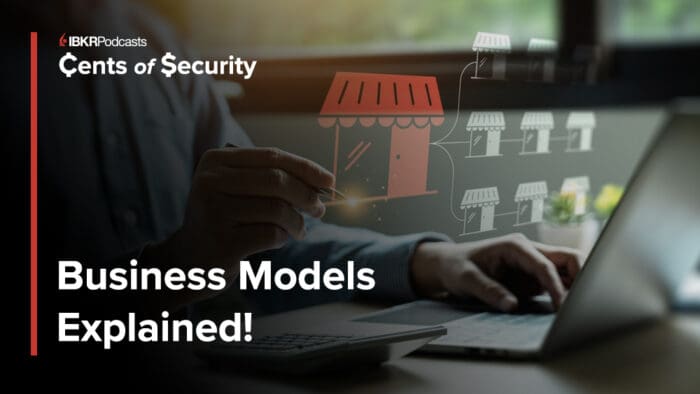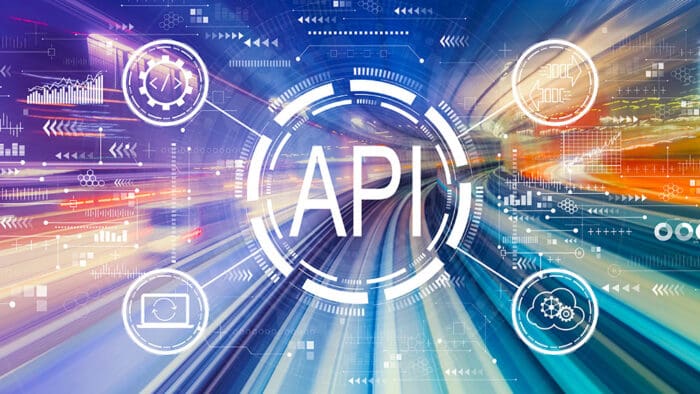The 2024 IBKR Interns host their first podcast, featuring Alex Gunz of Heptagon Capital. The discussion ranges from emerging investment trends in the tech space, the upcoming U.S. Presidential Election, and artificial intelligence. The speakers include Harshil Sanghvi, Cara Cannatello, Harikrishnan Venkatesh, Shweta Lokeshkumar and Gabriella Szyc.
Summary – IBKR Podcasts Ep. 182
The following is a summary of a live audio recording and may contain errors in spelling or grammar. Although IBKR has edited for clarity no material changes have been made.
Harshil Sanghvi
Welcome to this special IBKR podcast featuring our intern class of 2024. Today, our intern class will be joined by Alex Gunz of Heptagon Capital, who will provide insights on artificial intelligence, the upcoming presidential election, and other emerging trends. Alex, who previously appeared on episode 155, “A Journey Through Technology Investing Over Time”, brings his expertise in spotting future trends to engage with our future leaders.
We are excited for this unique discussion between our interns and an experienced professional in the field. And now, I will hand it over to Cara to get us started.
Cara Cannatello
Our guest today is Alex Guns, who is a highly experienced investment professional with over 25 years in financial services. His in depth expertise in equity markets gained from expert experience as a portfolio manager overseeing distinctive active equity funds alongside a successful tenure as a highly ranked sell side research analysis.
The Interactive Brokers internship is about an eight week commission based program. As a returning IB intern, participating in this program has been incredibly rewarding. The program gives us a chance to put classroom theories into practical use, giving us a hands on experience with endless opportunities, not only as an individual, but as a team member. More specifically, IB offers many areas in which one can intern in, such as Client Operations, Client Services, Software Development, Marketing, and Learning and development and more.
Overall, the mentorship we received from IB has been invaluable, guiding us through projects and always offering constructive feedback that helps us grow both personally and professionally.
Now we’ll move on to some questions for Alex regarding investing with AI. So Alex, what is artificial intelligence and how long has it been around for?
Alex Gunz
Well, first of all, thank you very much for having me on this program and delighted to share my views with yourselves and with all our listeners.
In terms of artificial intelligence, anyone who’s not aware of the term must probably have been on a different planet for the last few years. That said, I think it’s really important to frame artificial intelligence. The term has been around, almost since antiquity, really, if you think about the idea of automation or automata. This was something the ancient Greeks were talking about, and then fast forward much more to the start of the 21st century or even the end of the prior century, and many of our listeners and viewers will be familiar with IBM’s Watson appearing on Jeopardy, also AlphaGo, and I think really the best way to frame artificial intelligence is essentially it is about data. It is about using data to achieve more intelligent outcomes, so think of AI as being a way of making machines and making decision making correspondingly smarter and more intelligent.
Harikrishnan Venkatesh
Hey Alex. So as AI continues to evolve, there are growing concerns about data privacy and ethical implications.
So how does Heptagon Capital approach these issues while evaluating potential investments in AI driven companies?
Alex Gunz
I think you ask a really interesting question and we’re still in an incredibly early innings with regard to AI and really what’s happened so far is that we have seen the development of an infrastructure layer. That’s really why NVIDIA in particular has been so successful in terms of selling its GPU technology.
In terms of where we go from here, the bigger challenges you sort of allude to is developing appropriate applications to sit on top of that you infrastructure layer. And I think where we may run into problems in the overall market in terms of sentiment, in terms of expectations, is precisely given the problem you highlight, that there will be ethical concerns, there will be practical concerns in terms of implementation. In terms of how we think about translating that into investment philosophy, really a couple of things. Number one, how we’ve always tried to do things within the Future Trends Fund is to think about second order or indirect beneficiaries. So, the metaphorical shovel makers, if you will, rather than the miners. And then secondly, just to remind everyone, again, this is a pan thematic approach. So how AI develops is not going to be the only factor that, that influences the success or the future direction of this strategy.
Harikrishnan Venkatesh
And with AI and machine learning being pivotal in modern tech development, how do you evaluate the real world application of these technologies versus their speculative hype, and what criteria do you use to identify truly transformative AI investments?
Alex Gunz
That’s another great question and I think really the key approach for it at a general level, when thinking about future trends and investing is the following, and it’s how you separate hype from reality. So, it’s very easy to be correct about the trend, and I think we are of the opinion that AI will impact our lives in ways we cannot even imagine today, but how you translate that into practical investments is actually a very, very different matter. So the approach we’ve taken, and this would be valid whether you’re thinking about the thematic of AI or indeed thinking about any other thematic such as alternative energy or health care is really to think about what factors matter when we are picking stocks or identifying suitable investment candidates.
The hardest criteria we have, and there’s always really been in place, and really which acts as a sort of break, if you will, on this hype idea is that we do not, in this strategy, invest in loss making businesses. One of the key lessons I learned, particularly having started my career during the TMT bubble, is that cash is the best indicator of a business’s health. So we like businesses that are generating free cash flow. Above and beyond that, what we look for are pure play companies, clear market leaders in the fields in which they operate, and businesses which have a proven track record of innovation. Those are the key considerations.
Gabriella Szyc
Right, thank you. And our next few questions will continue on the trends and hype around AI.
So I want to start off by saying I really enjoyed reading your blog, and my first question is actually based on this hype cycle that you mentioned in one of your blog posts.
So according to this hype cycle, first comes a peak of inflated expectations, then a trough of disillusionment, a slope of enlightenment, and finally a plateau of productivity.
Where do you think the hype of AI is right now, and when do you think it’ll reach its disillusionment and plateau phases?
Alex Gunz
And so it’s a wonderful question and I almost wish I had a crystal ball or maybe we should ask ChatGPT for its answer to that question, but I think just to give you some framing observations, I mean this idea of a hype cycle, much as I’d love to claim, it as my own idea, this was something Gartner developed a long time ago and I think certainly if history is any guide to the present and the future, it’s something that we have seen play out time and time again.
I’d be very reluctant to give you a definitive answer to the question, but I would say we’re nearer to the peak of inflated expectations than perhaps we’ve been for some time. And really, the way I would frame it is to relate back to a previous question, what we’ve done so far has been very successful in terms of selling an infrastructure layer, but there has yet to be, to my mind, above and beyond chat GPT and Copilot, a real killer application or game changer and when you talk to many companies across many industry verticals, whether listed or unlisted, whether large or small, I think what they are struggling to do today is to enunciate how AI is actually translating into better revenues, better profitability. And I guess I’d just make two other reference points.
Number one, think about the parallel again from the 1990s, early 2000’s. Cisco at the time was the equivalent of what NVIDIA is today and Cisco’s worldview has played out totally. The internet is powered broadly speaking by Cisco’s routers, just as AI will be or is today and will be in the future powered by NVIDIA’s GPUs. But Cisco’s share price has never ever returned to its 1999 peak. So you can be right on the trend, but wrong on the valuation.
The second precedent would be with third generation mobile telephony. Certainly in Europe, I can’t speak so much for the U.S. All the national governments in Europe raised huge amounts of revenues for their exchequers in the year 2000 from selling off licenses.
However not a single telecoms network operator started making revenues from 3G until the form factor IE., The Apple iPhone came along in 2007. So you can see very, very clearly in that instance how you went from that peak in late 99, early 2000 through the trough you were talking about, out to the other side of that plateau, five to ten years later.
Shweta Lokeskumar
Thank you, Alex. So given your focus on long term trends, how do you balance the need for patience with rapid pace of technology change, especially in areas like AI?
Alex Gunz
Another wonderful question there are a few points I’d highlight here. Number one, it’s obviously very important to educate our client base about exactly what we’re doing here at Heptagon Capital and within the Future Trends Fund. So, this approach is, and always has been, very much one premised on active management. So, in other words, we are seeking to do something which is very different to the equity benchmark and I think our general approach is really to try and focus on the long term, whereas a lot of the short term is, in our view, noise.
The second observation I’d make is that, by definition, the strategy that we have created here at Heptagon is one which is multi thematic. So, in other words, we are investing in trends as diverse, as we often say in presentations, as diverse as from cloud to wind and from fish to chips. By chips, we obviously mean semiconductor chips. And the serious point here is that because all of these trends are developing at different rates of change, they’re at different stages of maturity, the beauty of what we do is that we do not have to bet on a single trend evolving in the very, very short term.And finally, we think that as these trends overlap, as we said, this is a multi-thematic approach they should actually reinforce each other and become indeed even more important. There’s a famous line from Mark Twain about how history does not repeat itself, but it can rhyme.
And in that sense, we have seen previous hype cycles and how they go through this process of disillusionment and then come out on the other side.I would say that again, from having started my career almost a generation ago in the late 90’s, having seen the full extent of the TMT, boom and bust at that period. It was very, very incisive and instructive in two respects. Number one, learning how to separate hype from reality and number two, focusing on free cash flow as almost a North Star, if you will, for the businesses we want to own. And we’ve seen, if you think about it, maybe AI is going down this route as well. We saw a lot of excitement about big data. We saw a lot of excitement about IoT. We saw a lot of excitement about Bitcoin, about Metaverse, about Finance 3.0. So these things do play out time and again. And really what we try and focus on is to separate the noise from the signal. And when you step back, you think about what you learn in your probably Economics 101 class.
Economics is about the efficient allocation of scarce resource and the whole idea is that technology, to our mind, is an enabler. It helps accelerate this process. And when you think about population growth, and the fact that you’ve got an aging population in much of the West, you’ve got an emerging population in much of the global South, these are the trends that we want to try and focus on, and will continue to focus on over time.
Harshil Sanghvi
Thank you, Alex, for that. Which regions or sectors do you find most attractive from an investment perspective?
Alex Gunz
I think the approach that we’ve always taken within the Heptagon Future Trends Fund is really to be as open minded as possible and not to be too dogmatic at all. So, in other words, many of the themes we invest in sort of overlap in terms of sector, overlap in terms of geography as well. This is, to remind everyone, a pan thematic strategy we’ve always followed. And essentially all of the businesses in which we invest are typically global companies. So, when we’re looking at trends, something like the energy transition will obviously play across fields such as alternative energy, technology and general industrials, just to cite one example.
Shweta Lokeskumar
So with the upcoming elections, how do you see the 2024 U.S. Presidential Election potentially impacting the investment landscape, particularly in areas like technology and renewable energy?
Alex Gunz
I think our experience with regard to elections has been the following, that it’s very dangerous to try and infer causality, number one. So in other words, what happens after an election can be very unpredictable. In other words, think about the case study of 2016. Most people were of the opinion that a Trump presidency back then would be a disaster, and yet equity markets rose, bond yields fell.
Secondly, there is an awful lot, as I’m sure everyone is aware, that can change between now and November. There’s clearly the health of the presidential candidates, there is the risk of geopolitical instability, misinformation and disinformation, and clearly what happens at a presidential level will be to an extent constrained by what also happens at a senate and a republic, and a, sorry, house of representatives level as well.
All of that said, clearly we should expect a different investing landscape under either a Republican or a Democrat administration. The work we’ve done would actually suggest that there’s perhaps more commonality between the two parties than there are differences. And what I mean by that is that we should probably see further fiscal, dominance on the part of both candidates. In other words, under a Biden Administration or a Democrat Administration, we would probably see an extension of subsidies, an extension of programs such as the Inflation Reduction Act. And under a Trump or Republican Administration, we’d probably see more tax cuts or the continuation of a low tax regime, which would inspire more innovation.
So similarly, again, when you look at the commonality across both parties, it would probably be in this idea of seeing China as a, relatively speaking, force for evil. In that sense, you should expect to see more subsidies and potentially, a more difficult geopolitical environment to navigate through.
So I think what that all means in terms of investment implications is the following. Number one, to try and focus on secular trends that should grow in importance irrespective of political regimes. Bear in mind this is only a four year period that we would know or have any particular president in charge of the country. And number two, I think you are right that it is important to nuance certain themes or sectors in particular, and there is a certain risk that under a Republican Administration, alternative energy may be more challenged, likewise electric vehicles. And for the record, the Future Trends Fund has no current exposure to the electric vehicles theme.
Gabriella Szyc
Thank you. Our guest for this episode has been author and fund manager Heptagon Capital, Alex Gunz. Thank you very much for your time and insights today, Alex.
Alex Gunz
Thanks so much for having me on your program.
Gabriella Szyc
And please remember to rate our recent episodes wherever you download your podcasts from and look out for more episodes at IBKR Podcasts. Thank you.
Disclosure: Interactive Brokers
The analysis in this material is provided for information only and is not and should not be construed as an offer to sell or the solicitation of an offer to buy any security. To the extent that this material discusses general market activity, industry or sector trends or other broad-based economic or political conditions, it should not be construed as research or investment advice. To the extent that it includes references to specific securities, commodities, currencies, or other instruments, those references do not constitute a recommendation by IBKR to buy, sell or hold such investments. This material does not and is not intended to take into account the particular financial conditions, investment objectives or requirements of individual customers. Before acting on this material, you should consider whether it is suitable for your particular circumstances and, as necessary, seek professional advice.
The views and opinions expressed herein are those of the author and do not necessarily reflect the views of Interactive Brokers, its affiliates, or its employees.


















Join The Conversation
If you have a general question, it may already be covered in our FAQs. If you have an account-specific question or concern, please reach out to Client Services.